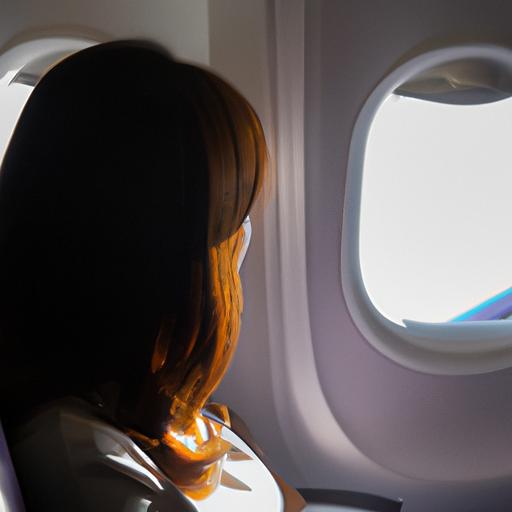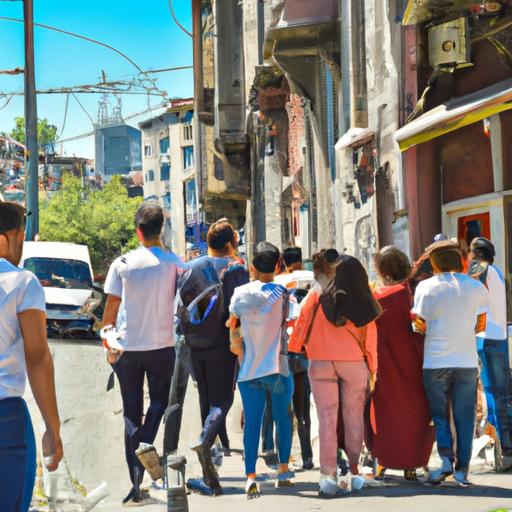Does Traveling Affect Period? How Travel Can Impact Your Menstrual Cycle
Have you ever noticed changes in your menstrual cycle after traveling? It’s not uncommon for women to experience variations in their periods while on the go. Understanding the effects of traveling on the menstrual cycle is crucial for maintaining your health and well-being. In this article, we will explore the importance of comprehending how travel can impact your period.
Traveling has become an integral part of our lives, whether it’s for work or leisure. However, the constant movement and changes in routine can have an influence on our bodies, including the menstrual cycle. The main keyword we will delve into is “does traveling affect period,” as it encapsulates this concern perfectly.
The menstrual cycle is a delicate balance of hormones and physiological processes that occur in a woman’s body. It typically lasts around 28 days, give or take a few, and involves the shedding of the uterine lining. Any disruptions to this cycle can cause irregularities in your period.
Various factors can affect the menstrual cycle, including hormonal imbalances, stress, diet, and exercise. However, it’s important to recognize that traveling can also have an impact. Changes in time zones, jet lag, alterations in daily routines, exposure to different climates and altitudes, and prolonged sitting during long journeys can all play a role in affecting your period.
Understanding how travel affects your menstrual cycle empowers you to take proactive steps to maintain regularity. In the next sections, we will explore the potential impact of traveling on your period and provide coping strategies to help you navigate these changes effectively. So, let’s dive into the details and uncover the mysteries of how travel can affect your menstrual cycle!
Understanding the Menstrual Cycle
The menstrual cycle is a complex process that occurs in a woman’s body, involving a series of hormonal changes and physical transformations. To comprehend the effects of travel on your period, it’s essential to have a basic understanding of the menstrual cycle and its phases.
Overview of the Menstrual Cycle and Its Phases
The menstrual cycle is typically divided into four phases: the menstrual phase, follicular phase, ovulation, and luteal phase. Each phase plays a crucial role in preparing the body for possible pregnancy and the shedding of the uterine lining if conception does not occur.
-
Menstrual Phase: This marks the beginning of the menstrual cycle, characterized by the shedding of the uterine lining. It typically lasts around 3-7 days, and during this time, you may experience bleeding and discomfort.
-
Follicular Phase: Following the menstrual phase, the follicular phase begins. This phase is initiated by the release of follicle-stimulating hormone (FSH), which stimulates the growth of follicles in the ovaries. One follicle eventually becomes dominant and releases an egg.
-
Ovulation: Ovulation is the release of a mature egg from the ovary. It usually occurs around the middle of the menstrual cycle, approximately 14 days before the start of the next period. This is the most fertile phase, as the egg can be fertilized by sperm.
-
Luteal Phase: After ovulation, the luteal phase begins. During this phase, the ruptured follicle transforms into the corpus luteum, which releases progesterone. If fertilization doesn’t occur, the corpus luteum degenerates, leading to a decrease in progesterone levels.
Normal Duration and Characteristics of a Typical Menstrual Cycle
The duration of a typical menstrual cycle can vary from woman to woman, but it usually ranges from 21 to 35 days. The average length is around 28 days. However, it’s important to note that variations in cycle length are normal and may not necessarily indicate a problem.
A typical menstrual period lasts around 3 to 7 days, with the flow being heaviest during the first few days. The color and consistency of menstrual blood can also vary. It’s common for women to experience mild discomfort or premenstrual symptoms a few days before their period begins.
Understanding the different phases and characteristics of a typical menstrual cycle provides a foundation for comprehending how travel can potentially affect your period. In the following sections, we will explore the factors that can influence the menstrual cycle and specifically focus on the impact of traveling. So, let’s continue our journey of unraveling the effects of travel on your menstrual cycle!
Factors Affecting the Menstrual Cycle
The menstrual cycle is a complex interplay of various factors that can influence its regularity and duration. Understanding these factors is crucial in comprehending how travel can impact your period. Let’s delve into the different elements that can affect your menstrual cycle:
A. Hormonal Imbalances
Hormonal imbalances can significantly disrupt the menstrual cycle. Fluctuations in estrogen and progesterone levels can lead to irregular periods, missed periods, or even heavier or lighter flow. These imbalances can be caused by factors such as polycystic ovary syndrome (PCOS), thyroid disorders, or certain medications.
B. Stress and Anxiety
Stress and anxiety can wreak havoc on your body, including your menstrual cycle. When you are under stress, your body produces more cortisol, which can interfere with the production of reproductive hormones. This disruption can result in changes to the regularity and duration of your period.
C. Changes in Diet and Exercise
Changes in diet and exercise routines can have a significant impact on your menstrual cycle. Drastic weight loss or gain, sudden dietary changes, or excessive exercise can all disrupt hormonal balance and affect the regularity of your period. It is essential to maintain a healthy and balanced lifestyle to support a regular menstrual cycle.
D. Environmental Factors
Environmental factors, such as exposure to pollutants or toxins, can also influence your menstrual cycle. Chemicals present in certain products or environments can disrupt the endocrine system, leading to hormonal imbalances and irregular periods. It’s crucial to be mindful of your surroundings and minimize exposure to harmful substances.
E. Traveling and Its Potential Impact
Now, let’s focus on the main subject of this article: how traveling can affect your menstrual cycle. While traveling, you may experience changes in time zones, jet lag, disruptions to daily routines, exposure to different climates and altitudes, and prolonged sitting during long journeys. All of these factors can potentially disrupt your hormonal balance and impact the regularity of your period.
Understanding these various factors that can influence your menstrual cycle prepares you to navigate the potential effects of traveling on your period. In the following sections, we will explore the specific impact of travel on your menstrual cycle and provide coping strategies to help you maintain a regular cycle while on the go. So, let’s continue our journey of understanding how travel affects your period!
The Impact of Traveling on the Menstrual Cycle
Traveling can have various effects on the menstrual cycle, potentially leading to changes in your period. Let’s explore some of the ways in which traveling can impact your menstrual cycle:
A. Changes in Time Zones and Jet Lag
When you travel across different time zones, your body’s internal clock can be thrown off balance. This disruption, known as jet lag, can affect the regularity of your menstrual cycle. The sudden shift in daylight exposure can disturb the hormonal balance in your body, leading to irregular periods or even missed periods.
B. Disruption of Daily Routines
Traveling often involves a change in routine, including eating patterns, exercise habits, and sleep schedules. These disruptions can disrupt the delicate hormonal balance that regulates your menstrual cycle. Irregular meal times, lack of exercise, and inadequate sleep can all contribute to menstrual irregularities while traveling.
C. Exposure to Different Climates and Altitudes
Traveling to different climates and altitudes can impact your body’s thermoregulation and oxygen levels. Extreme temperatures, high altitudes, or humid environments can put stress on your body, potentially affecting your menstrual cycle. These changes in environmental conditions can disrupt the hormonal balance and lead to irregular periods.
D. Effects of Prolonged Sitting During Long Journeys
Long journeys often involve prolonged periods of sitting, whether it’s on a plane, train, or in a car. Extended periods of sitting can restrict blood flow to the pelvic area, leading to stagnant blood and potential menstrual imbalances. It’s essential to take breaks, stretch, and move around during long journeys to promote healthy blood circulation and minimize the impact on your menstrual cycle.
E. Disruption of Sleep Patterns
Traveling to different time zones can disrupt your sleep patterns, leading to sleep disturbances and fatigue. Lack of quality sleep can contribute to hormonal imbalances and irregular periods. It’s important to prioritize sleep hygiene and establish a consistent sleep routine while traveling to minimize the potential effects on your menstrual cycle.
Understanding how traveling can impact your menstrual cycle is the first step towards managing any potential changes. In the next section, we will discuss coping strategies that can help you maintain a regular cycle while on the go. So, let’s explore how you can take charge of your menstrual health during your travels!
Coping Strategies for Maintaining a Regular Cycle while Traveling
When it comes to maintaining a regular menstrual cycle while traveling, there are several effective coping strategies that can help minimize the impact of travel on your period. By implementing these tips and suggestions, you can ensure a smoother experience and reduce any disruptions to your cycle.
A. Maintaining a Healthy and Balanced Lifestyle
Taking care of your overall health and well-being is essential for keeping your menstrual cycle on track while traveling. Here are some key practices to consider:
-
Nutrition: Stick to a balanced diet that includes a variety of fruits, vegetables, whole grains, and lean proteins. Adequate nutrition can support hormonal balance and help regulate your cycle.
-
Hydration: Stay well-hydrated throughout your journey by drinking plenty of water. Proper hydration can alleviate bloating and other discomforts associated with your period.
-
Exercise: Engage in regular physical activity, even while traveling. Exercise promotes healthy blood circulation, reduces stress, and can help regulate your menstrual cycle.
B. Prioritizing Self-Care and Stress Management Techniques
Traveling can be stressful, and stress can have a significant impact on your period. To maintain a regular cycle, it’s crucial to prioritize self-care and employ stress management techniques:
-
Relaxation Techniques: Practice relaxation techniques such as deep breathing, meditation, or yoga to help reduce stress levels and promote hormonal balance.
-
Self-Care Rituals: Take time for yourself during your travels. Engage in activities that bring you joy, whether it’s reading a book, taking a bath, or indulging in a spa treatment. Self-care can help alleviate stress and contribute to a regular menstrual cycle.
C. Planning Ahead for Travel and Adjusting Routines Accordingly
Strategic planning before and during your travel can go a long way in maintaining a regular cycle. Consider the following tips:
-
Pack Essentials: Ensure you have an adequate supply of menstrual products or consider using menstrual cups or period underwear for convenience during travel.
-
Adjust Sleep Patterns: If traveling across different time zones, gradually adjust your sleep schedule to minimize the impact on your body and menstrual cycle.
-
Maintain Routine: Try to stick to your usual routine as much as possible, including meal times, exercise, and sleep patterns. Consistency can help regulate your cycle.
D. Consulting Healthcare Professionals for Advice or Possible Interventions
If you experience persistent irregularities or disruptions to your menstrual cycle while traveling, it may be helpful to seek guidance from healthcare professionals. They can provide personalized advice and, if necessary, recommend suitable interventions to help regulate your period.
Remember, every woman’s body is unique, and the impact of travel on the menstrual cycle varies from person to person. By implementing these coping strategies, you can take control of your menstrual health while enjoying your travels to the fullest.





